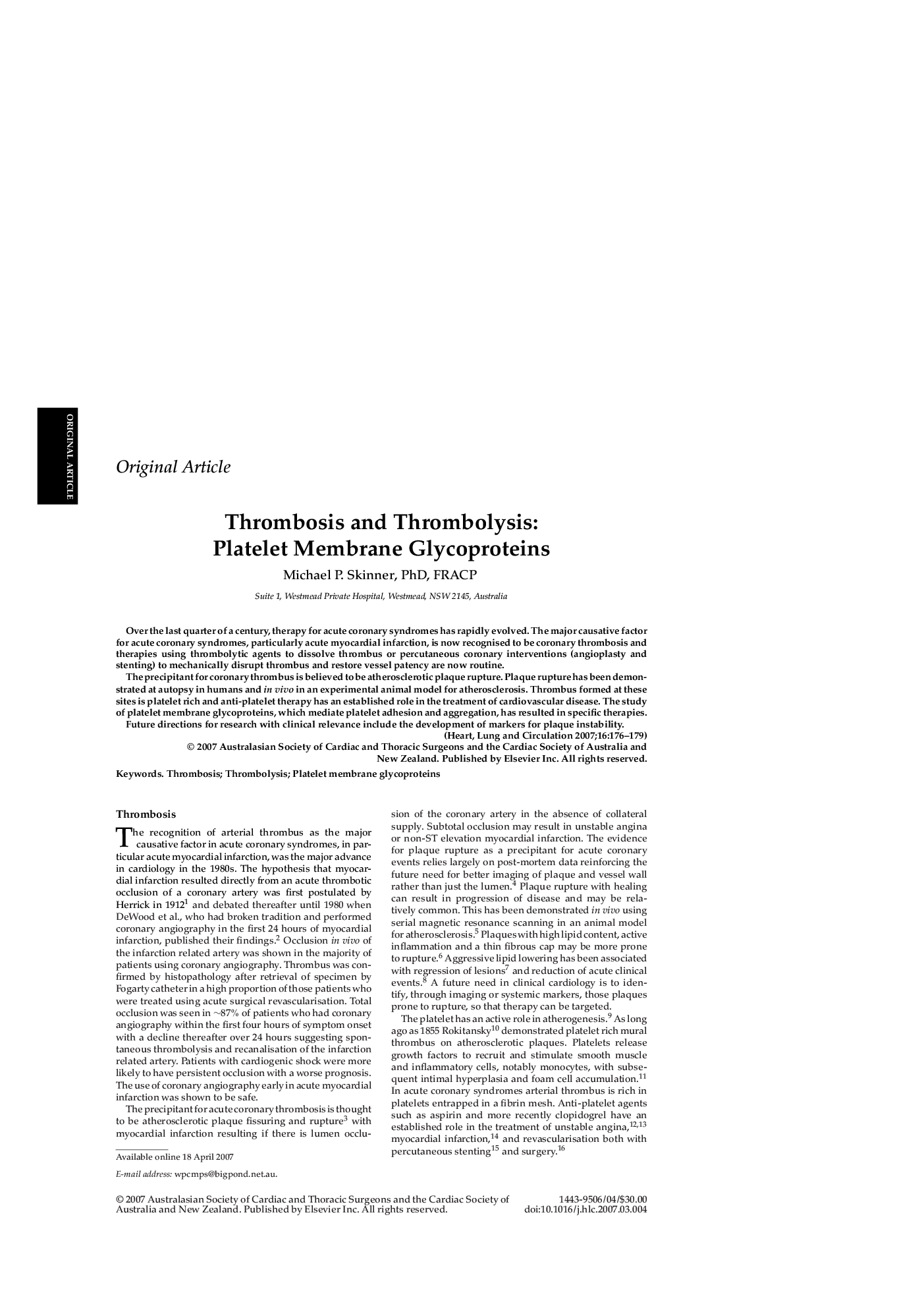| Article ID | Journal | Published Year | Pages | File Type |
|---|---|---|---|---|
| 2920144 | Heart, Lung and Circulation | 2007 | 4 Pages |
Over the last quarter of a century, therapy for acute coronary syndromes has rapidly evolved. The major causative factor for acute coronary syndromes, particularly acute myocardial infarction, is now recognised to be coronary thrombosis and therapies using thrombolytic agents to dissolve thrombus or percutaneous coronary interventions (angioplasty and stenting) to mechanically disrupt thrombus and restore vessel patency are now routine.The precipitant for coronary thrombus is believed to be atherosclerotic plaque rupture. Plaque rupture has been demonstrated at autopsy in humans and in vivo in an experimental animal model for atherosclerosis. Thrombus formed at these sites is platelet rich and anti-platelet therapy has an established role in the treatment of cardiovascular disease. The study of platelet membrane glycoproteins, which mediate platelet adhesion and aggregation, has resulted in specific therapies.Future directions for research with clinical relevance include the development of markers for plaque instability.
